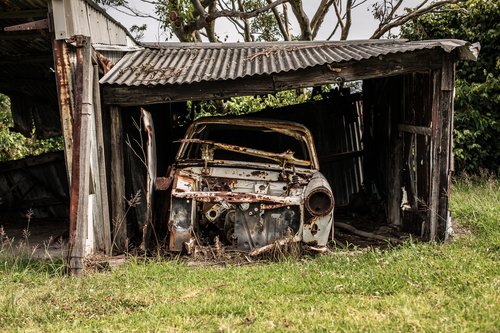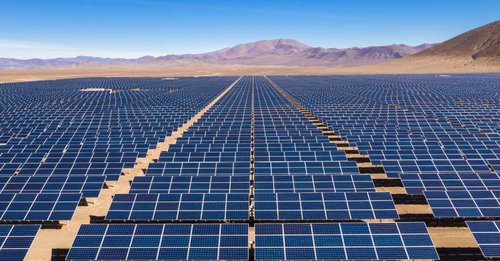Covid Policy Shifts After 2020 - How Our Power Of Choice Is Shifting Through Sustainable Economic Models
Thursday, 07 January 2021By Philip Cluff

“Beyond the mountains is rest", said Goethe on the subject of romance. As the long finance ethos compels us to view things holistically, it is important to remember that mountains are always rising and falling with imperceptible slowness. Seemingly insignificant obstacles to prosperity can explode without warning, as we have all seen this year.
Covid has sharply exposed how quickly socio-economic progress can be reversed, public health systems in cities are still unequal to the challenge of novel viruses, the systemic weakness of some states, exposed by the pandemic, appeal to the predatory militarism of others, and terrorist organizations are profiting from the malaise. One key conclusion that can be drawn from this chaos, is that effective political leadership has become near impossible, particularly as fast-paced, cost-effective policy responses are hampered by the pitiless lense of 24-hour press coverage and weaponised social media.
The freedom beyond the heights of covid-19 seems like a promised land. That is to say, we know what it looks like because we crave normalcy. Odds on, most people simply want to return “back to normal”, but it’s no surprise that the old normal will not be forthcoming. Not because normal is unachievable, but rather because the rules of competition expect us to make up for lost time with borrowed time. Forces like social media affect this. The unfathomable immediacy and randomness of information transference have forced us to rethink the credibility of the Efficient Markets Hypothesis. Election tampering means that we hardly even know if price sensitive material is intentionally false anymore!

I recently partook in a UNESCO driven initiative to rectify educational imbalances for children who have lost a year of schooling, and all the associate benefits, due to covid. The problem sadly is that Covid is not uniquely to blame it has merely shone a light on long-term underinvestment across all aspects of the infrastructure which supports society. We were already behind, and in more ways than one: The need for Italy to sign up to China’s Belt and Road Initiatives took on a dramatic significance when structural underinvestment led to the deaths of 43 people on a bridge in Genoa on 18th August 2018. Legal systems are fraying at the seems - a backlog of roughly a quarter of a million court cases in London this year is a case in point. The latest report of progress towards the UN Sustainable Development Goals shows progress at a snail's pace, and in some areas going into reverse.
I’ve seen it in the ESG space too, where exploration companies in frontier markets have the common courtesy to pool their resources for value inclusive initiatives for local stakeholders. The work many companies put into sustainable globalization is being lost in translation. There is an insufficient sense of longevity once something has been achieved, perhaps because tax structures are becoming more intimidating and SME equity is both culturally difficult to tackle as a whole, and beneath the interests of the larger players who can effect change in the necessary time.
This raises an obvious but uncomfortable question, what does it mean for accelerating resilience through non-renewable industrial decline? Oil and Gas still make up about 84% of global energy demand and that does not square well with frontier market demographic growth. We still have not reconciled societal prosperity with our obligations to fight climate change. You can have cruise ships or dolphins in Venice but you can’t have both at the same time. If the West is lagging, then how are those frontier markets performing by the same standard?
North African governments have manifestly taken a promising line that they have the means to make low-cost improvements on the Middle Eastern models of the last twenty years. The producer’s curse weighs heavily on one’s conscious, especially as North Africa will be Eurasia’s vital counterpart in effecting long term development and growth in Sub-Saharan Africa (where there are still fewer high-speed internet terminals than there are between London and New York). African urbanization will be extremely different from the process we have known until now, so all of the high flying cities on sustainable indices like Shanghai, Tokyo, and Paris have a lot to offer as well as a lot to learn, especially as they are all due for population declines in the midterm.

The rhetoric is promising, as are policy responses, such as Algeria repealing its exclusivist mandate of 51% national ownership in any given business. Still, knowing thatAlgeria could power the entire world with solar energy, if it had the appropriate means, leaves a bitter aftertaste. Is it too late to reach those kinds of targets? The Stern review on climate change is inflammatory precisely because it tries to answer that question, and I will not venture to do the same, but Emperor Augustan’s favorite maxim, “Festina Lente (Hasten slowly)”, is frustratingly apt. The conduct of directorship will need to look backward and ask questions of the sustainability of its methods before attempting to escape forwards through innovation. Traditionally, a good non-executive director would curb overenthusiasm and keep the entrepreneurial direction of a chairman rooted in the real world.
To put it crudely, all of the conversations we are having now, especially about smart cities, require a different structural perspective so that we can account for what we must accept, as well as what we can alter. It is unthinkable to facilitate urbanization through data sharing when a single line of code is all hackers need to jeopardize millions of livelihoods. Data scientists estimate that 3% of code lines are directly exploitable by hackers and unless we can restructure our everyday cyber-security it could be lethal.
As management ought to take a renewed perspective, perhaps supranational organizations should too. The Equator Principles are what we need them to be, but not enough major players commit to them. It has become a vogue political argument in France, that even if France had net-zero carbon emissions instantaneously, it would still mean less than a 20% reduction in Chinese emissions. With that said, maybe the first step is the unilateral codification in more national constitutions pledging to fight climate change as a sovereign duty. It would, in other words, be far more groundbreaking if Algeria updated its constitution to promise a reduction of carbon emissions rather than signing up to another international framework tantamount to the same pledge. If huge living standard promises are going to be realized in a low carbon context it has to be a pledge that the next generation is indivisibly born into, rather than a consensus among elected representatives with short mandates.
Algeria, to carry the example further, is in trouble because it cannot reconcile with its closest neighbors. We need capital to flow like water across borders as cleanly as possible. If we don’t, then the negligence of one state will disaffect the next generation of another. The quality of exchange regulation is showing signs of improvement, and that means so much more since it entails freedom of speech and information for all kinds of investors and their circles.

Goethe's idealism is encouraging, but he was not the only one to make the practical observation, nor was he the only observer to do it in the same place. He, Montaigne, and Chateaubriand all noted that their passage south through the Alps into Italy was a liberation of sense, a new way of seeing, just as Primo Levi had found the nourishment of scientific and creative genius in the foothills of the Dolomites. However, Italy has more mountains, stretching all the way down the narrow country. The mountains never end; they are rising and falling where the breadth of our vantage might interpret them as stillness, just as we have the good fortune to see stars that no longer exist reconciled in the night sky.
Therefore I urge you, to mitigate optimism through the groundings of patient co-operation. I have read enough about economic miracles to buoy myself this year, and I am no expert, but whether it is the Dutch merchants of Dryden’s Annus Mirabilis, the Japanese wealth creators of the Manchurian railway, or the not-actually-so-glorious 'Thirty Glorious Years' in post-war France, the harbinger of enthusiastic change is always to suit the demand of near neighbors. The Kuznets hypothesis would suggest that lesser developed countries lack the fortitude to craft mutually beneficial accords with their neighbors in times of trouble, but the amount of work the African Union and the African Export-Import Bank have done this year to raise awareness around debt financing makes this feel like a watershed rather than a repetition. Our relationship with our planet has aged tremendously in a short space of time; the mountains have risen before our very eyes. Beyond the mountains is more work, but it’s all for a good cause.